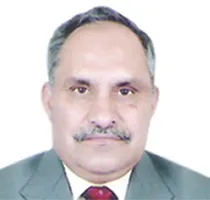Just like Alice in Wonderland, one cannot but say, “curiouser and curiouser” as one is confronted with the growing suspicion that either deliberate efforts were made, or are under way, to tamper with investigations in some of the most important and high profile cases involving national security. These include the Ishrat Jahan encounter killings of 2004, the Samjhauta Express bombings of 2007 and the Malegaon blasts of 2008. We suddenly find that cases against those allegedly involved, supposedly members of ‘saffron’ terror groups are suddenly falling apart as the accused and witnesses retract their earlier statements or turn hostile, while investigative agencies appear distinctly unconcerned over these developments.
On the other hand, new documents surfacing in the public domain seem to suggest that crucial evidence was either overlooked or suppressed and a distinct set of bias in the manner the investigative agencies have handled these cases. In either case this bodes ill for our security establishment and for the public at large. Curiously, all of this occurred between 2004 and 2008, which was just prior to the 2009 general election. Is it now a case of chickens coming home to roost?
Events that lead to large scale mayhem and carnage are bound to be politicised. This is not just true of us, but is a common response the world over. For example, at this moment, the United States is grappling with the 28 pages of the 9/11 report that continue to be classified. There are allegations that suggest that those pages relate to evidence of complicity on the part of Saudi officials providing assistance to the perpetrators of the attacks. While political considerations will be an important factor for Governments in deciding whether to release or suppress details of investigations of such events, letting politics decide the course of investigations is negotiating a slippery slope, fraught with danger, as it can destroy the credibility of those in Government and of the agencies themselves. Unfortunately, there is every reason to believe that this is exactly what has transpired in nearly all the incidents of terror in India that we have been confronted with ever since the events that led to the killing of Ishrat Jahan and her fellow travellers.
Events pertaining to their deaths is now under the consideration of the courts with some police and Intelligence Bureau officials facing criminal charges at the behest of the Central Bureau of Investigation. However, important documents have come to light that show that political interference at the highest levels of Government may have been responsible for irretrievably damaging cohesion between our intelligence and law enforcement agencies.
It now emerges that P. Chidambaram, then Union Minister for Home Affairs, was less than truthful in explaining as to why he amended an affidavit in which the Government had informed the court that Ishrat Jahan and her companions belonged to a Lashkar-e-Tayyeba terror module assigned to assassinate Narendra Modi, then Chief Minister of Gujarat. This, despite the NIA having gleaned these details from their interrogation of David Coleman Headley, the US citizen of Pakistani descent who was a member of the LeT and intimately involved in the planning of the 26/11 Mumbai attacks. While Chidambaram now finds himself in a bind to explain his actions, the Congress has been quick to distance itself from his actions, suggesting it was a decision taken by him of his own volition. This explanation is difficult to digest, given our knowledge of the Congress working culture.
What is even more troubling is the manner in which the Samjhauta Express bombings have been investigated. This terror attack occurred around < class="aBn" tabindex="0" data-term="goog_1325935204">< class="aQJ">midnight on February 18, 2007, on the bi-weekly train service connecting Delhi and Lahore. Bombs were set off in two carriages, both filled with passengers, near Panipat, 80Km north of New Delhi. In the resulting carnage 68 people were killed and dozens more injured, mostly Pakistani nationals.
The attack seemed like an obvious attempt to disrupt improving relations between the two nations, as it came just a day before Pakistani Foreign Minister Khurshid Mahmud Kasuri was to arrive in New Delhi to resume peace talks. While this is the known modus operandi of terror groups working in tandem with the Pakistani intelligence establishment, the NIA concluded that the attack was the handiwork of a hardline Hindutva group, allegedly Abhinav Bharat, which it believed was also involved in an earlier attack at Malegaon in 2006.
This was despite the fact that on July 1, 2009, the United States Treasury and United Nations Security Council placed sanctions on Lashkar-e-Tayyeba, and named Arif Qasmani and Dawood Ibrahim as the masterminds of this bombing. In 2009, Qasmani was further subjected to a travel ban and his assets frozen by the ‘1267 Committee’ of the Security Council, which continues to this day. Meanwhile, the NIA has not given a credible reason for not pursuing the LeT angle.
Now, as its case falls apart in court with a key prosecution witness, Yashpal Bhadana, a member of Hindu fundamentalist group Abhinav Bharat turning hostile, the Director General of the NIA has been forced to eat humble pie and meet his counterparts in the US for information about Qasmani’s involvement. This is a perfect example of too little eight years too late.
Shockingly, though not surprisingly, a Congress spokesperson defended the NIA for not pursuing this obvious line of investigation against the LeT by suggesting that the motives of the US and the UNSC are suspect. This comes from a party that while in Government for decades attempted to convince the international community, and especially the US of Pakistan’s role in fomenting and fostering terror in India.
Finally, the real import of details made public by Wikileaks in 2010 of the August 3, 2009 cable records of US Ambassador Timothy Roemer’s observations from a “candid conversation” he had with Rahul Gandhi at a dinner hosted by Prime Minister Manmohan Singh for visiting Secretary of State Hillary Clinton in mid July 2009 is likely to become clear. Gandhi had purportedly stated that “the bigger threat (to India) may be the growth of radicalised Hindu groups, which create religious tensions and political confrontations with the Muslim community.” Both Gandhi and Singh need to clarify as to how they came to this conclusion less than six months after the most devastating attacks faced by the country at Mumbai had been orchestrated by the LeT from across the border.
The fact that investigations in all these matters were only in their preliminary stages, and as we see now, not particularly well directed, one cannot help but suspect that the Congress leadership and the Government of the day were attempting to steer investigations in a specific and politically motivated direction. However, if all of this is an incorrect interpretation of factsm, and we are to accept the allegations that are now doing the rounds, that investigative agencies are changing course because of the new political dispensation, it is then imperative that the Supreme Court deal with the issue in all earnestness. Clearly, those found guilty of subverting national security must face the consequences, regardless of the position they may be holding or earlier held.
This commentary originally appeared in The Pioneer.
The views expressed above belong to the author(s). ORF research and analyses now available on Telegram! Click here to access our curated content — blogs, longforms and interviews.




 PREV
PREV


